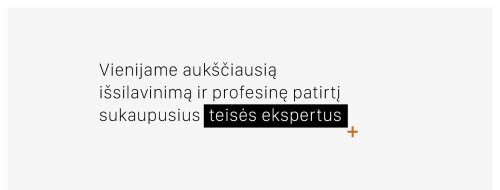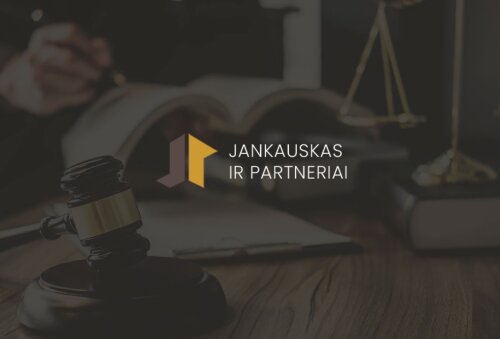Best Adoption Lawyers in Republic of Lithuania
Share your needs with us, get contacted by law firms.
Free. Takes 2 min.
Free Guide to Hiring a Family Lawyer
Or refine your search by selecting a city:
List of the best lawyers in Republic of Lithuania
About Adoption Law in Republic of Lithuania:
Adoption in the Republic of Lithuania is governed by the Law on the Fundamentals of Protection of the Rights of the Child and the Civil Code. The process involves the transfer of parental rights and responsibilities from the biological parents to the adoptive parents. Adoption is considered a permanent legal arrangement, and the well-being of the child is the primary focus of the adoption process.
Why You May Need a Lawyer:
Seeking legal advice from a lawyer may be necessary in cases where there are complexities or disputes in the adoption process. A lawyer can help navigate the legal requirements, ensure that the rights of all parties involved are protected, and provide guidance on the adoption procedure.
Local Laws Overview:
Key aspects of adoption laws in Lithuania include the requirement for adoptive parents to meet certain criteria, such as being at least 18 years old, financially stable, and able to provide a safe and loving home for the child. The legal process involves court approval, and the adoption is finalized through a court order.
Frequently Asked Questions:
1. Can single individuals adopt in Lithuania?
Yes, single individuals can adopt in Lithuania, but they must meet the same criteria as couples.
2. Are there age requirements for adoptive parents?
Adoptive parents must be at least 18 years old, and there is no upper age limit, provided that the parents are physically and mentally capable of caring for the child.
3. How long does the adoption process take?
The adoption process in Lithuania can vary in length, but it typically takes several months to a year to complete, depending on the circumstances of the case.
4. What are the legal rights of the biological parents after the adoption is finalized?
Once the adoption is finalized, the biological parents relinquish all parental rights and responsibilities, and the adoptive parents become the legal parents of the child.
5. Is international adoption allowed in Lithuania?
Yes, international adoption is allowed in Lithuania, but it is subject to specific regulations and agreements with the child's country of origin.
6. Can the adoptive parents change the child's name?
Yes, the adoptive parents have the right to change the child's name during the adoption process.
7. What role does the court play in the adoption process?
The court oversees the adoption process in Lithuania and must approve the adoption before it is finalized.
8. Are there any financial costs associated with adoption?
There may be some administrative fees and costs associated with the adoption process, but these can vary depending on the circumstances of the case.
9. Can same-sex couples adopt in Lithuania?
Same-sex couples are not legally allowed to adopt in Lithuania.
10. What rights do adopted children have?
Adopted children have the same legal rights as biological children, including inheritance rights and the right to a loving and safe home.
Additional Resources:
For more information on adoption in Lithuania, you can contact the Ministry of Social Security and Labour or seek guidance from adoption agencies and organizations such as the Lithuanian Adoption Organization.
Next Steps:
If you require legal assistance in the adoption process in Lithuania, it is advisable to consult with a qualified lawyer who specializes in family law and adoption. They can provide you with guidance on the legal requirements, represent you in court, and ensure that the adoption process is carried out smoothly and in the best interests of the child.
Lawzana helps you find the best lawyers and law firms in Republic of Lithuania through a curated and pre-screened list of qualified legal professionals. Our platform offers rankings and detailed profiles of attorneys and law firms, allowing you to compare based on practice areas, including Adoption, experience, and client feedback.
Each profile includes a description of the firm's areas of practice, client reviews, team members and partners, year of establishment, spoken languages, office locations, contact information, social media presence, and any published articles or resources. Most firms on our platform speak English and are experienced in both local and international legal matters.
Get a quote from top-rated law firms in Republic of Lithuania — quickly, securely, and without unnecessary hassle.
Disclaimer:
The information provided on this page is for general informational purposes only and does not constitute legal advice. While we strive to ensure the accuracy and relevance of the content, legal information may change over time, and interpretations of the law can vary. You should always consult with a qualified legal professional for advice specific to your situation.
We disclaim all liability for actions taken or not taken based on the content of this page. If you believe any information is incorrect or outdated, please contact us, and we will review and update it where appropriate.
Browse adoption law firms by city in Republic of Lithuania
Refine your search by selecting a city.
















